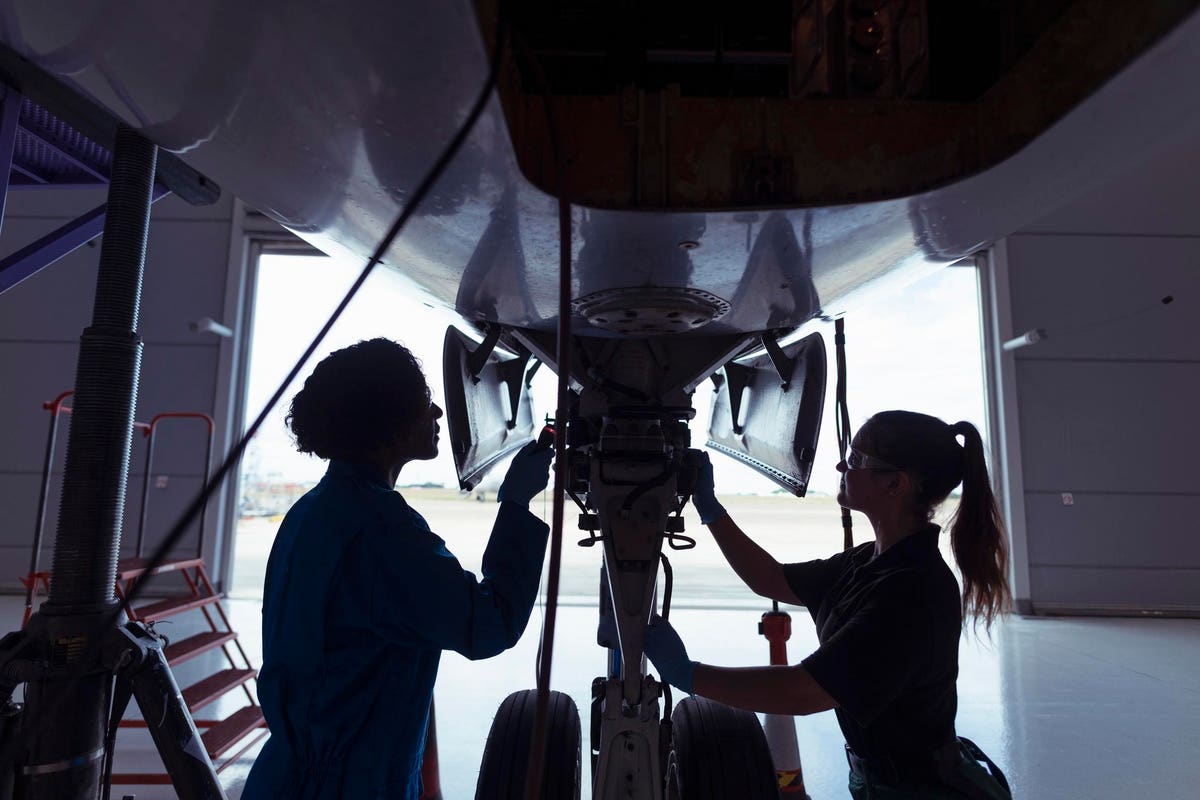Henri Al Helaly, Business Strategist and Entrepreneur, COO at Skytex Aero.
Africa’s rise in the global aviation scene is spearheaded by Morocco, Nigeria and South Africa. These leaders are driving growth across private, commercial and military aviation, presenting vast opportunities globally. The next frontier? Aircraft manufacturing, spanning private jets to military drones.
Morocco: Gateway To Africa’s Aviation Renaissance
From the edge of the Mediterranean, Morocco is forging an aviation path marked by impressive growth. As Airbus released their forecast of a 3.6% annual growth in demand for passenger traffic, the nation’s strategic location, coupled with an investment-friendly climate, makes it an attractive proposition for international aviation businesses, including aircraft manufacturing.
For entrepreneurs and businesses, Morocco offers an open sky policy that encourages foreign investment and partnerships, paving the way for robust growth in its aviation sector.
Nigeria: Spearheading West Africa’s Commercial Aviation Boom
In West Africa, Nigeria’s aviation industry is taking flight. With an increasing middle-class population and a robust economy, the country’s demand for air travel is surging. According to the International Air Transport Association: “Air transport market in Nigeria is forecast under the ‘current trends’ scenario to grow by 174% in the next 20 years. This would result in an additional 9.4 billion passenger journeys by 2037. If met, this increased demand would support approximately US $4.7 billion of GDP and almost 555,700 jobs.”
The surge in air travel demand opens doors for commercial airliner production. Businesses can exploit opportunities from infrastructure to airline services and aircraft manufacturing. Nigeria stands out as a promising hub for global entrepreneurs.
South Africa: A Pioneer In Africa’s Private And Military Aviation
South Africa is not only leading the private aviation sector but also shaping the continent’s military aviation landscape. The South African Air Force (SAAF), equipped with advanced military aircraft, serves as a testament to the country’s military aviation prowess. This experience and infrastructure provide an excellent foundation for the manufacturing of military aircraft and drones.
In private aviation, South Africa continues to be the most mature market on the continent, with over 120 private- and state-owned companies.
The Road Ahead: Africa’s Soaring Potential
I believe Africa’s aviation industry is set for an upward trajectory, with Morocco, Nigeria and South Africa leading the way. The continent’s growth in the sector reflects the combination of expanding economies, urbanization and a burgeoning middle class with increased spending power.
For entrepreneurs and businessmen, these developments represent a unique opportunity to tap into a rapidly growing market, ripe with potential. By investing in aviation-related ventures, including aircraft manufacturing, they can help shape the future of Africa’s aviation landscape while benefiting from its growth.
Best Practices For Engaging In Morocco’s Aviation Sector
Cultural Respect: Morocco values its rich history and diverse culture. Prioritize relationships and trust, respecting local traditions and business norms.
Open Sky Policy: Utilize Morocco’s progressive open sky policy. This offers opportunities for joint ventures and partnerships in the aviation sector.
Localization: Partner with local entities. This aids in understanding regulatory processes and the domestic market.
Skill Development: Collaborate with Moroccan educational institutions. Investing in skills ensures a competent workforce for your operations.
Infrastructure Investment: Morocco aims to be an aviation hub due to its strategic position. Consider investments in infrastructure across both major and emerging areas.
Challenges And Navigating Them
Navigating business in Morocco presents challenges, including language barriers and differing regulatory frameworks. The solution I use at my company has been prioritizing localization and hiring local experts. Building trust is essential and takes time but leads to lasting partnerships. For those eyeing Morocco, it’s crucial to understand its culture, engage with locals and stay adaptable.
The Global Impact: Toward A More Connected World
The rise of Africa’s aviation sector is more than just a regional phenomenon—it carries global implications. As Africa’s connectivity increases, so does its integration into the global economy. This integration can spur trade, attract investment and stimulate economic growth not just in Africa, but worldwide.
With Morocco, Nigeria and South Africa as rising aviation hubs, Africa is no longer simply a destination for global airlines, but a significant player in the industry. This shift reflects the broader trend of Africa’s increasing significance on the world stage—a testament to the potential of its economies and its people.
Predictions For Africa’s Aviation Industry
Growth: Africa’s aviation is set for rapid expansion due to a growing middle class and the need for enhanced connectivity.
Infrastructure: I believe increased demand will drive investments in airports, both in terms of expansion and new constructions.
Regional Leaders: Besides Morocco, Nigeria and South Africa, nations like Kenya, Ethiopia and Egypt could emerge as pivotal aviation hubs.
Local Manufacturing: As the sector evolves, Africa may shift from just consumers to aircraft and drone producers.
Sustainability: Emphasis on global sustainability positions Africa to lead in green aviation practices.
Challenges: Political instability, regulations and skilled workforce needs remain hurdles to tackle for sustained growth.
In my opinion, Morocco is poised to attract more aviation businesses due to its strategic location and favorable policies. Nigeria’s booming population foretells a surge in travel, while South Africa will remain a major player in private and military aviation. The demand for connectivity and Africa’s rich resources and young demographic signify growth for its aviation sector. Despite challenges, the industry’s outlook is positive.
Conclusion: Skyward Bound
As we look ahead, I believe the potential for the growth of Africa’s aviation industry is enormous. From private and commercial aviation to military aircraft, opportunities abound for entrepreneurs and businesses ready to innovate and drive change. With the addition of aircraft manufacturing to its repertoire, Africa’s skyward ascent is a journey that the world, and its entrepreneurs, will be watching keenly.
Forbes Business Council is the foremost growth and networking organization for business owners and leaders. Do I qualify?
Read the full article here





